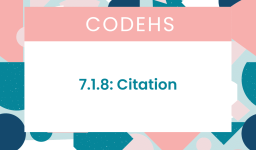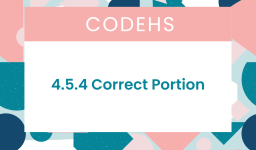Which statement best describes the relative importance of oral reading fluency and verbal comprehension as factors in reading comprehension?
a. As children get older, verbal comprehension becomes more important than oral reading fluency.
b. Oral reading fluency and verbal comprehension are equally important throughout childhood and adolescence.
c. As children get older, verbal comprehension matters less, and oral reading fluency becomes more important.
d. Although oral reading fluency and verbal comprehension are both important, a child with problems in one domain can usually use the other domain to compensate.
This question is a part of the LETRS Unit 1 Session 1-8 Check For Understanding answers.
Answer
As children get older, verbal comprehension becomes more important than oral reading fluency.
In the early stages of reading development, children are primarily focused on decoding words and building fluency, so oral reading fluency is a significant predictor of their reading comprehension.
However, as they progress through school and the texts they encounter become more complex and demand higher-level thinking, verbal comprehension becomes more crucial.
While fluency remains important (because fluent readers can more effortlessly process the text and free up cognitive resources for comprehension), the content’s complexity means that understanding the text (verbal comprehension) becomes the more critical skill.
Younger readers often struggle with reading comprehension if they are not yet fluent readers, simply because they’re expending so much mental energy on decoding the words.
But as children become more fluent readers, their understanding of the text (or lack thereof) becomes a clearer indicator of their overall reading comprehension abilities. This shift becomes especially evident in the later elementary years and continues into adolescence.
Source: Perfetti, C. A. (1985). Reading ability. Oxford University Press.



